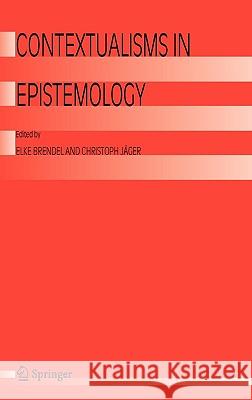Contextualisms in Epistemology » książka
Contextualisms in Epistemology
ISBN-13: 9781402031816 / Angielski / Twarda / 2005 / 368 str.
Contextualism has become one of the leading paradigms in contemporary epistemology. According to this view, there is no context-independent standard of knowledge, and as a result, all knowledge ascriptions are context-sensitive. Contextualists contend that their account of this analysis allows us to resolve some major epistemological problems such as skeptical paradoxes and the lottery paradox, and that it helps us explain various other linguistic data about knowledge ascriptions. The apparent ease with which contextualism seems to solve numerous epistemological quandaries has inspired the burgeoning interest in it. This comprehensive anthology collects twenty original essays and critical commentaries on different aspects of contextualism, written by leading philosophers on the topic. The editors introduction sketches the historical development of the contextualist movement and provides a survey and analysis of its arguments and major positions. The papers explore, inter alia, the central problems and prospects of semantic (or conversational) contextualism and its main alternative approaches such as inferential (or issue) contextualism, epistemic contextualism, and virtue contextualism. They also investigate the connections between contextualism and epistemic particularism, and between contextualism and stability accounts of knowledge. Contributors include: Antonia Barke, Peter Baumann, Elke Brendel, Stewart Cohen, Wayne Davis, Fred Dretske, Mylan Engel, Jr., Gerhard Ernst, Verena Gottschling, John Greco, Thomas Grundmann, Frank Hofmann, Christoph Jager, Nikola Kompa, Dirk Koppelberg, Mark Lance, Margaret Little, Lydia Mechtenberg, Hans Rott, Bruce Russell, Gilbert Scharifi, and Michael Williams."











